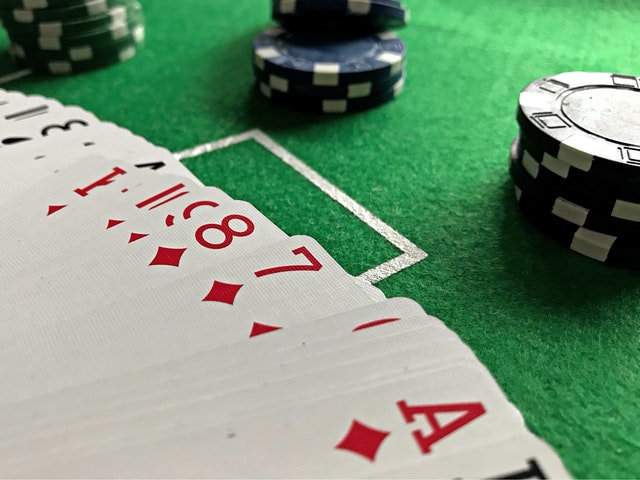Casinos have been a popular form of entertainment for centuries, attracting people from all walks of life with the promise of exciting games and the chance to win big. From the opulent casinos of Las Vegas to the more modest gambling halls found in cities around the world, casinos continue to draw in crowds year after year. However, opening a casino is not as simple as renting a space and putting up a few slot machines. There are a multitude of costs and factors to consider, from the acquisition of land and construction of buildings, to legal fees, staffing costs, and much more.
In this post, we will explore the costs involved in opening a casino, both land-based and online, and provide some tips for aspiring casino owners.
The cost of land-based casinos
Land-based casinos are physical establishments that require land, buildings, and infrastructure to operate. As a result, the costs of opening and operating a land-based casino can be significant. Here are some of the main expenses involved in opening a land-based casino:
- Land acquisition: The cost of acquiring land to build a casino can vary greatly depending on location and market demand. In some areas, land prices may be prohibitively expensive, while in others, the cost may be more reasonable. For example, land in a prime location in Las Vegas could cost millions of dollars.
- Building and construction costs: The cost of building a casino can also be substantial. This includes everything from the initial design and planning to the actual construction of the building itself. High-end casinos often feature luxurious decor and state-of-the-art technology, which can add significantly to the construction costs.
- Legal fees and permits: Casinos are heavily regulated, and obtaining the necessary permits and licenses can be time-consuming and expensive. Legal fees can add up quickly, and you may need to hire a team of lawyers to navigate the complex regulations involved.
- Equipment and furniture: Casinos require a range of specialized equipment and furniture, including gaming tables, slot machines, chairs, and security systems. The cost of purchasing or leasing this equipment can be significant.
- Staffing and training costs: A casino requires a large staff, including dealers, security personnel, servers, and more. Recruiting and training these employees can be costly, particularly if you are hiring experienced professionals.
The cost of opening a land-based casino can range from tens of millions to hundreds of millions of dollars, depending on the size and scope of the operation. It’s important to carefully consider these costs and conduct thorough market research before embarking on a casino venture.
The cost of online casinos
While the costs of opening an online casino are generally lower than those associated with a land-based casino, according to DashTickets.NZ page, there are still significant expenses involved. Here are some of the main costs of opening an online casino:
- Software development and licensing: Online casinos require software to operate, and developing or licensing this software can be a significant expense. This includes not only the gaming software but also the website and mobile app development.
- Website design and maintenance: Creating a user-friendly website that is visually appealing and easy to navigate is crucial for the success of an online casino. This involves hiring skilled web developers, designers, and marketers to create and maintain the website.
- Marketing and advertising: Online casinos need to market themselves to attract customers. This involves a range of digital marketing techniques such as search engine optimization (SEO), pay-per-click (PPC) advertising, and social media marketing.
- Payment processing and security: Online casinos must provide secure payment processing for their customers. This involves setting up merchant accounts, complying with regulations, and ensuring that customer data is protected from cyber threats.
- Customer support: An online casino must have customer support in place to assist players with any issues they may encounter. This involves hiring a team of customer support representatives who are knowledgeable and responsive.
The cost of opening an online casino can range from hundreds of thousands to millions of dollars, depending on the size and scope of the operation. It’s important to carefully consider these costs and conduct thorough market research before starting an online casino business.
Hidden costs
In addition to the upfront costs of opening a casino, there are several hidden costs that aspiring casino owners should be aware of. Here are some of the main hidden costs:
- Taxes and regulatory fees: Casinos are subject to a range of taxes and regulatory fees, including licensing fees, gaming taxes, and state and federal taxes. These costs can be substantial, and should be factored into your financial projections.
- Utilities and maintenance costs: Running a casino requires a lot of energy and resources, and the associated utilities and maintenance costs can add up quickly. This includes electricity, water, heating, air conditioning, and building maintenance.
- Security and surveillance costs: Casinos must maintain a high level of security to prevent fraud and theft. This involves hiring security personnel, installing surveillance cameras, and implementing access control measures.
- Employee benefits: In addition to wages, casino employees are typically entitled to a range of benefits, including health insurance, retirement plans, and paid time off. These benefits can add significantly to the overall cost of running a casino.
- Marketing and promotions: Even after a casino is up and running, ongoing marketing and promotions are necessary to attract and retain customers. This includes advertising campaigns, loyalty programs, and special events, all of which can be costly.
Conclusion
Opening a casino, whether land-based or online, involves significant costs and careful planning. From land acquisition and construction to legal fees and staffing costs, the upfront expenses can be substantial. However, there are also hidden costs to consider, such as taxes and regulatory fees, utilities and maintenance costs, and ongoing marketing and promotions. It’s important to conduct thorough research and seek advice from industry experts before embarking on a casino venture. Despite the costs, the casino industry continues to be a lucrative one, with the potential for significant profits for those who are successful.







